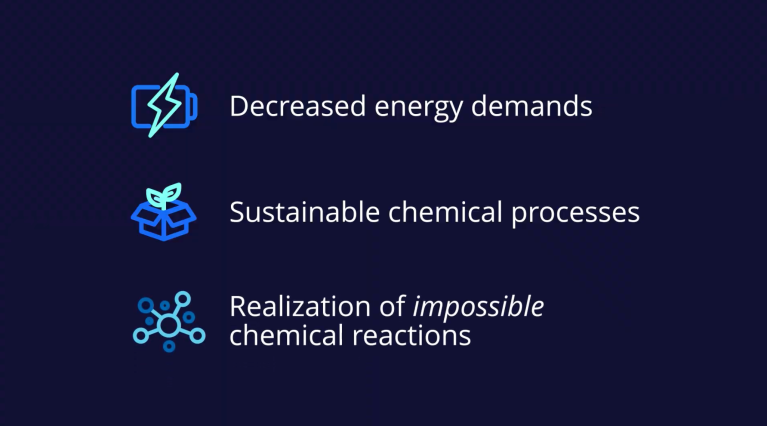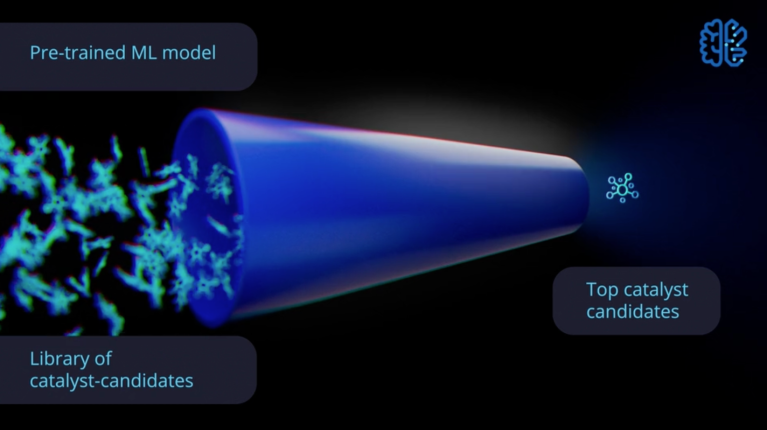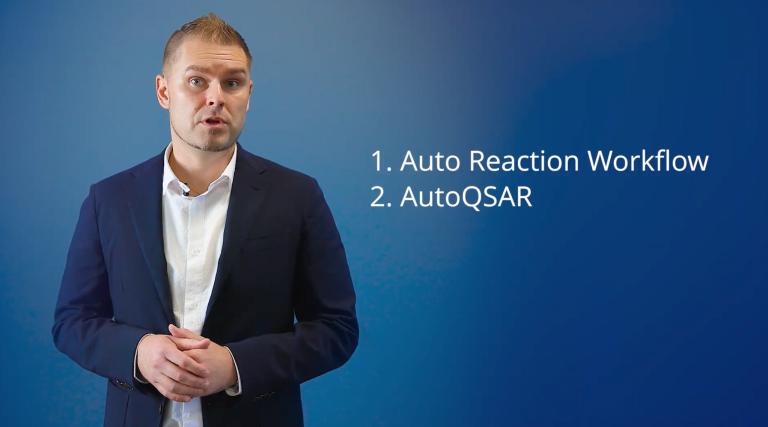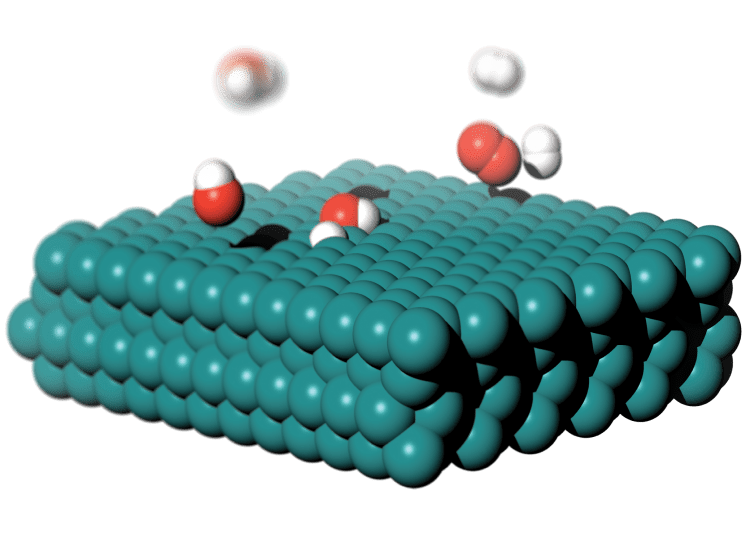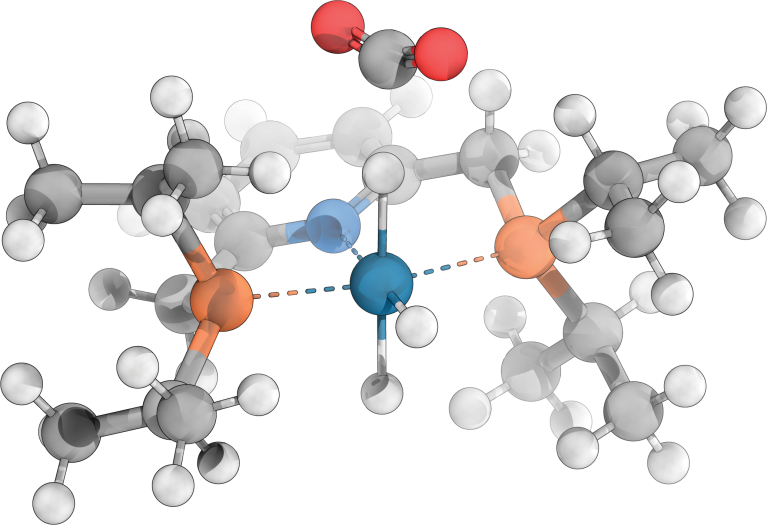- Predict physico-chemical properties of new catalysts
- Gain a molecular-level understanding of homogeneous and heterogeneous catalytic mechanisms
- Enable indirect and direct catalyst design

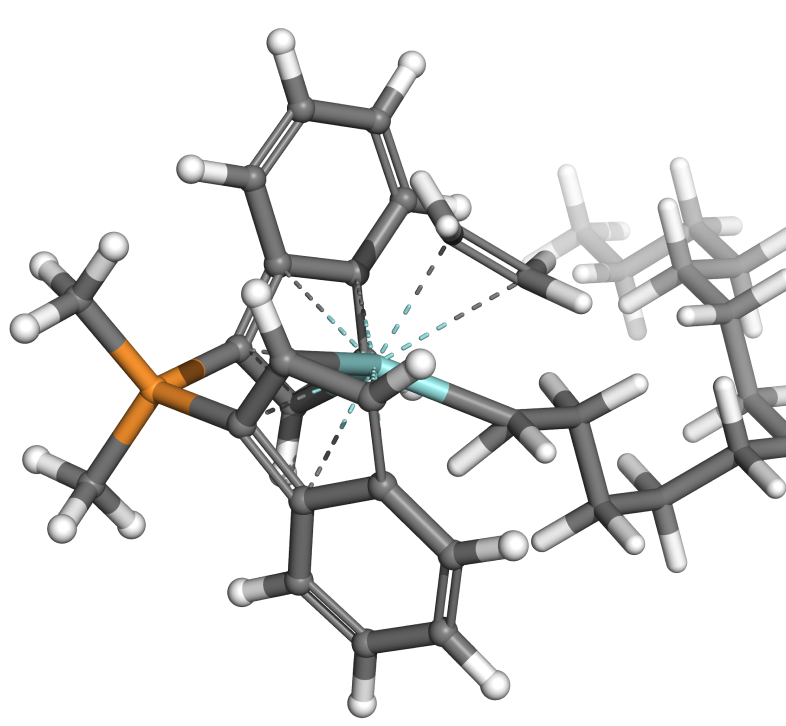
Accelerate catalyst design and optimize chemical reactions at the atomic level
The need for new materials is urgent, driven by growing market demands and stringent environmental regulations. To meet these needs, scientists across industries are on the search for new catalytic and non-catalytic processes that help reduce energy requirements, eliminate unwanted byproducts, and improve the selectivity and reactivity of chemical reactions.
Schrödinger’s advanced computational tools offer solutions that accelerate the discovery of these next generation catalytic and non-catalytic processes through cutting-edge physics-based modeling, machine learning (ML), and collaborative informatics platform.

Intuitive computational workflows designed by catalysis experts
Easy-to-use system builders for all material types
Powerful workflows for physics-based simulation, machine learning, and data analysis
Dedicated customer support and extensive training resources
How we can help you innovate
Speed time to market of new catalysts
Optimize reactivity in non-catalytic reactions
- Elucidate the mechanisms of chemical reactions
- Automatically predict the selectivity and activity of reactants
- Evaluate thermal decomposition products
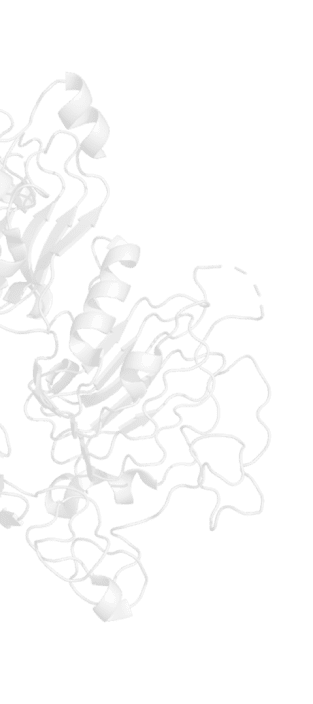
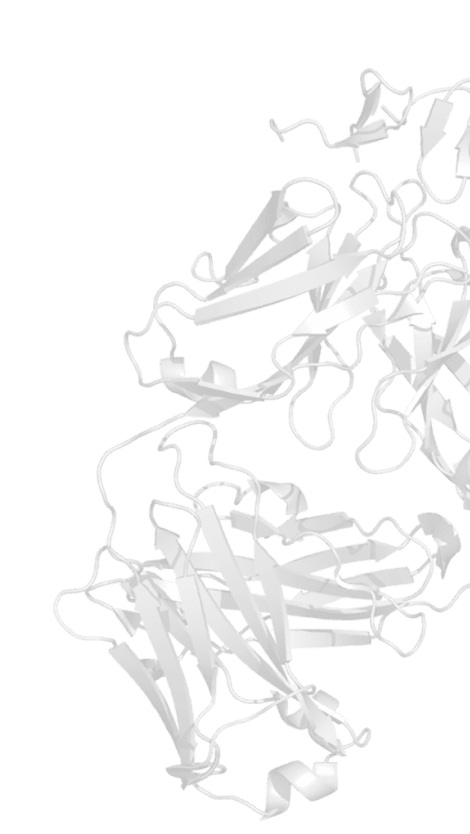

Homogeneous & heterogeneous catalyst design
Case studies & webinars
Discover how Schrödinger technology is being used to solve real-world research challenges.

Address materials, energy, and environmental challenges across industries with computational catalysis
Oil & Gas
Maximize yield and minimize waste of oilfield chemicals, reduce manufacturing cost and carbon footprint.
Learn moreSpecialty Chemicals
Drive the innovation of new chemistry design and meet the global demand of specialty chemicals.
Learn morePlastics
Deliver high-performance plastics with improved production, recyclability, and biodegradability.
Learn morePharmaceuticals
Develop and produce innovative pharmaceutical ingredients for effective drug formulations.
Learn more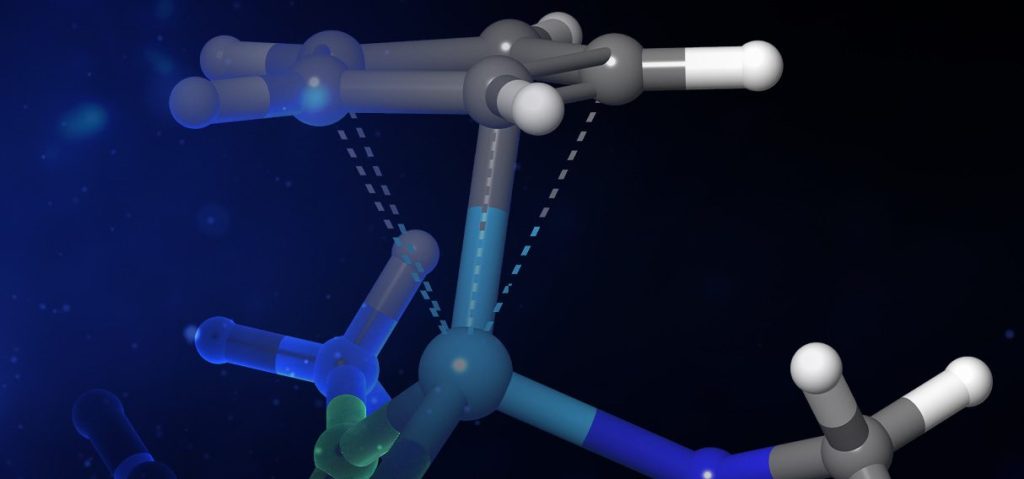
Molecular modeling for materials science applications: Homogeneous catalysis and reactivity course
Online certification course: Level-up your skill set in catalysis modeling
Learn how to apply industry-leading computational software to predict key properties of organic and organometallic compounds, determine transition state and generate reaction profiles with automated workflows and machine learning models.
- Self-paced learning content
- Hands-on access to Schrödinger software
- Guided and independent case studies
Documentation & Tutorials
Get answers to common questions and learn best practices for using Schrödinger’s software.
Key Products
Learn more about the key computational technologies available to progress your research projects.
Virtual Cluster
Secure, scalable environment for running simulations on the cloud
MS Reactivity
Automated workflows for design, optimization, and unsupervised mechanism discovery in molecular chemistry
Jaguar
Quantum mechanics solution for rapid and accurate prediction of molecular structures and properties
MS Informatics
Automated machine learning tools for materials science applications
DeepAutoQSAR
Automated, scalable solution for the training and application of predictive machine learning models
Quantum ESPRESSO Interface
Integrated graphical user interface for nanoscale quantum mechanical simulations
Publications
Browse the list of peer-reviewed publications using Schrödinger technology in related application areas.
Iron-catalysed synthesis and chemical recycling of telechelic 1,3-enchained oligocyclobutanes
Chirik P. J. et al. Nature Chemistry 2021, 13, 156-162
Exploring the mechanism of Cr(VI) catalyzed hypochlorous acid decomposition
Busch M et al. ChemCatChem 2022, e202101850
Titanium Dioxide as the Most Used Photocatalyst for Water Purification: An Overview
Armaković S.J et al. Catalysts 2023, 13(1), 26
Software and services to meet your organizational needs
Software Platform
Deploy digital materials discovery workflows with a comprehensive and user-friendly platform grounded in physics-based molecular modeling, machine learning, and team collaboration.
Research Services
Leverage Schrödinger’s expert computational scientists to assist at key stages in your materials discovery and development process.
Support & Training
Access expert support, educational materials, and training resources designed for both novice and experienced users.
